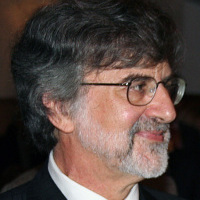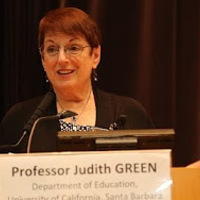
Carolina Botha
Related Authors
Noel B. Salazar
KU Leuven
Antonio Dias de Figueiredo
Universidade de Coimbra
Judith L Green
University of California, Santa Barbara
Andreas Umland
National University of "Kyiv-Mohyla Academy"
Ana Isabel Ribeiro
Universidade de Coimbra
Jo Tondeur
Vrije Universiteit Brussel
Andrea Hellman
Missouri State University
David Seamon
Kansas State University
Sara Kajder
The University of Georgia
Armando Marques-Guedes
UNL - New University of Lisbon
InterestsView All (24)










Uploads
Papers by Carolina Botha
Such a multi-authored approach to research also creates space for the individual voices of silenced, marginalized and often burnt out teachers to be heard. Through a constant migration between theory and praxis within the habitus of practical theology, the academic discourses about teachers, factors causing stress in their lives and their personal relationship with God are explored. This specific context creates a moment of praxis where teachers can feel empowered and in a position to facilitate social transformation. This research journey thus concerns itself with a critical reflection on the secular and religious aspects as it is understood in the specific context of a teacher. The postfoundationalist approach to practical theology forces a researcher to firstly listen to the stories of people in real life situations and does not merely aim to describe a general context, but confronts the participants with a specific and concrete situation, in this case the state of education in South Africa.
Two groups of participants took part in this study. Through conversations the first group conceptualized the factors causing stress in their lives and explored the traditional understanding of having a calling. The question is asked whether the traditional concept of calling is still relevant in the lives of modern day teachers. Concepts like stewardship and servant leadership are offered as alternatives. It is then postulated that the awareness of the presence of God in a teacher’s professional life can change the way that this person perceives a calling, will cope with stress and anxiety, as well as reduce the possibility of them experiencing severe burnout.
The second group attended a weekend retreat where these teachers could share hope and encourage each other to take part in healing conversations. They were offered the opportunity to re-author their stories and deconstruct the discourses that shapes their lives and identities as teachers. Subsequently, their preferred identities as teachers with a calling to be stewards for the Kingdom of God were strengthened through conceptualizing the influence that living according to such an identity can have on their relationship with the Department of Education, their colleagues, themselves and their relationship with God. The teachers attending the retreat also defined and conceptualized a school driven by a calling. They further committed to transform their school to becoming such a school driven by a calling.
Seeing themselves as practical theologians does not eliminate the factors that cause stress in teachers’ lives, but it becomes the driving force that keeps them coping in times of duress. The participants in this research journey learned that having a calling to teach requires a daily commitment to being in the service of God, to viewing the children and the situation in education in South Africa through the eyes of God. Being a practical theologian creates a different kind of responsibility in the Christian teacher, because they are now accountable to an alternative source than only the Department of Education, they answer to God. Thus they become the hands and feet of God in their classrooms and in turn, serve as guardians and agents of hope for each other.
Key words:
Practical theology, high school teachers, old model C schools, agents of hope, calling, stewardship, servant leadership, stress, burnout, retreat.
Such a multi-authored approach to research also creates space for the individual voices of silenced, marginalized and often burnt out teachers to be heard. Through a constant migration between theory and praxis within the habitus of practical theology, the academic discourses about teachers, factors causing stress in their lives and their personal relationship with God are explored. This specific context creates a moment of praxis where teachers can feel empowered and in a position to facilitate social transformation. This research journey thus concerns itself with a critical reflection on the secular and religious aspects as it is understood in the specific context of a teacher. The postfoundationalist approach to practical theology forces a researcher to firstly listen to the stories of people in real life situations and does not merely aim to describe a general context, but confronts the participants with a specific and concrete situation, in this case the state of education in South Africa.
Two groups of participants took part in this study. Through conversations the first group conceptualized the factors causing stress in their lives and explored the traditional understanding of having a calling. The question is asked whether the traditional concept of calling is still relevant in the lives of modern day teachers. Concepts like stewardship and servant leadership are offered as alternatives. It is then postulated that the awareness of the presence of God in a teacher’s professional life can change the way that this person perceives a calling, will cope with stress and anxiety, as well as reduce the possibility of them experiencing severe burnout.
The second group attended a weekend retreat where these teachers could share hope and encourage each other to take part in healing conversations. They were offered the opportunity to re-author their stories and deconstruct the discourses that shapes their lives and identities as teachers. Subsequently, their preferred identities as teachers with a calling to be stewards for the Kingdom of God were strengthened through conceptualizing the influence that living according to such an identity can have on their relationship with the Department of Education, their colleagues, themselves and their relationship with God. The teachers attending the retreat also defined and conceptualized a school driven by a calling. They further committed to transform their school to becoming such a school driven by a calling.
Seeing themselves as practical theologians does not eliminate the factors that cause stress in teachers’ lives, but it becomes the driving force that keeps them coping in times of duress. The participants in this research journey learned that having a calling to teach requires a daily commitment to being in the service of God, to viewing the children and the situation in education in South Africa through the eyes of God. Being a practical theologian creates a different kind of responsibility in the Christian teacher, because they are now accountable to an alternative source than only the Department of Education, they answer to God. Thus they become the hands and feet of God in their classrooms and in turn, serve as guardians and agents of hope for each other.
Key words:
Practical theology, high school teachers, old model C schools, agents of hope, calling, stewardship, servant leadership, stress, burnout, retreat.